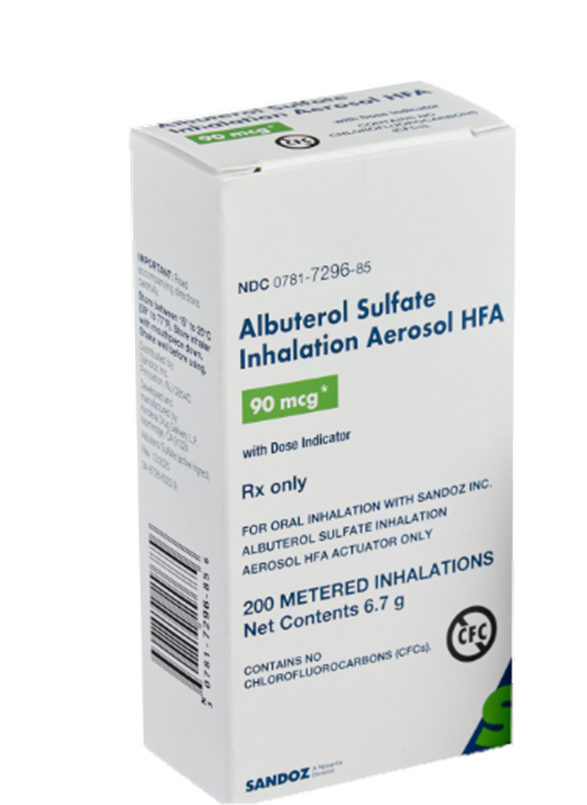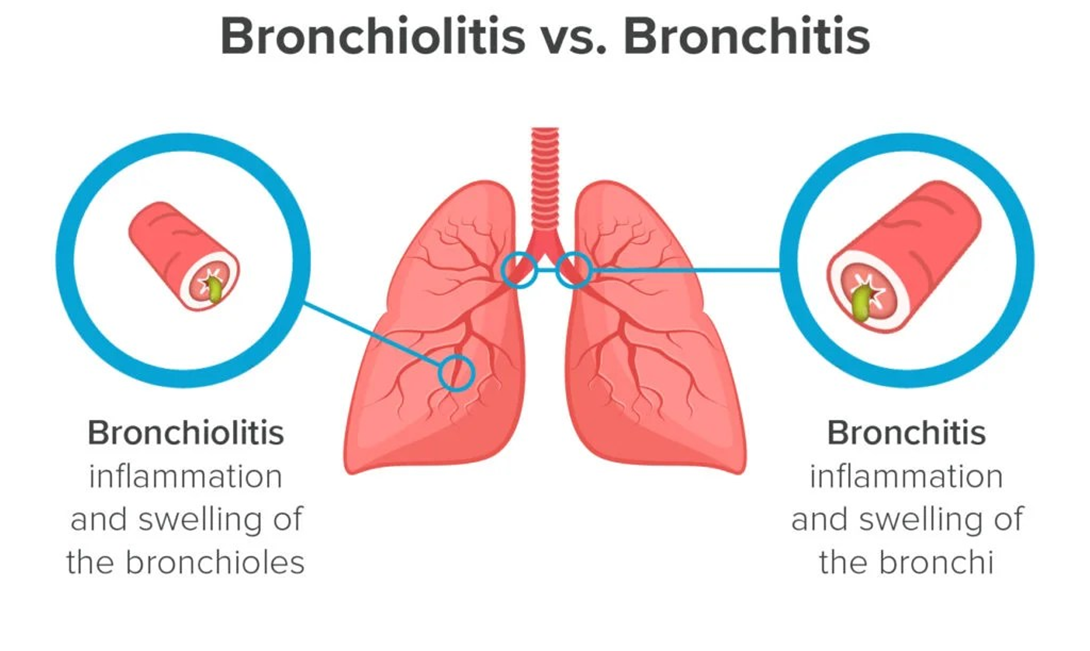A nurse in an emergency department is caring for an adult who is experiencing an acute asthma attack. Which of the following medications should the nurse expect to administer?
Montelukast
Budesonide
Prednisone
Albuterol
The Correct Answer is D
Choice A reason: This statement is incorrect, as montelukast is a leukotriene receptor antagonist that is used for long-term control and prevention of asthma symptoms. It is not effective for acute asthma attacks, as it does not provide immediate bronchodilation.
Choice B reason: This statement is incorrect, as budesonide is an inhaled corticosteroid that is used for long-term control and prevention of inflammation in asthma. It is not effective for acute asthma attacks, as it does not provide immediate relief of bronchospasm.
Choice C reason: This statement is incorrect, as prednisone is an oral corticosteroid that is used for short-term treatment of severe asthma exacerbations. It is not effective for acute asthma attacks, as it takes several hours to exert its anti-inflammatory effect.
Choice D reason: This statement is correct, as albuterol is a short-acting beta2 agonist that is used for quick relief of acute asthma symptoms. It provides rapid bronchodilation by relaxing the smooth muscles of the airways.

Nursing Test Bank
Naxlex Comprehensive Predictor Exams
Related Questions
Correct Answer is B
Explanation
Choice A reason: This statement is incorrect, as reports of thirst are not a manifestation of hemorrhage following a tonsillectomy. Thirst may be caused by dehydration, dry mouth, or fever, which are common after surgery.
Choice B reason: This statement is correct, as frequent swallowing is a manifestation of hemorrhage following a tonsillectomy. Swallowing may indicate that the child is bleeding from the surgical site and trying to clear the blood from the throat. The nurse should inspect the child's mouth and throat for signs of bleeding and notify the provider.
Choice C reason: This statement is incorrect, as mouth breathing is not a manifestation of hemorrhage following a tonsillectomy. Mouth breathing may be due to nasal congestion, pain, or swelling, which are expected after surgery.
Choice D reason: This statement is incorrect, as reports of pain are not a manifestation of hemorrhage following a tonsillectomy. Pain is a normal and expected outcome after surgery and should be managed with analgesics and comfort measures.
Correct Answer is B
Explanation
Choice A reason: Epiglottitis is a life-threatening condition that causes inflammation and swelling of the epiglottis, the flap of tissue that covers the entrance to the trachea. It can block the airway and cause respiratory distress. The signs and symptoms of epiglottitis include drooling, dysphagia, dysphonia, high fever, and tripod position. Epiglottitis is rare in infants and more common in children aged 2-6 years.
Choice B reason: Bronchiolitis is a viral infection that causes inflammation and mucus production in the bronchioles, the smallest airways in the lungs. It can impair gas exchange and cause respiratory distress. The signs and symptoms of bronchiolitis include sneezing, coughing, nasal congestion, wheezing, tachypnea, retractions, and apneic spells. Bronchiolitis is common in infants and children under 2 years of age, especially during the winter months.
Choice C reason: Influenza is a viral infection that affects the respiratory system. It can cause fever, chills, headache, muscle aches, fatigue, sore throat, cough, and nasal congestion. Influenza can also lead to complications such as pneumonia, otitis media, and sinusitis. Influenza is common in children and adults of all ages, especially during the flu season.
Choice D reason: Croup is a viral infection that causes inflammation and narrowing of the larynx and trachea. It can cause a characteristic barking cough, hoarseness, stridor, and respiratory distress. Croup is common in children aged 6 months to 3 years, especially during the fall and winter months.

Whether you are a student looking to ace your exams or a practicing nurse seeking to enhance your expertise , our nursing education contents will empower you with the confidence and competence to make a difference in the lives of patients and become a respected leader in the healthcare field.
Visit Naxlex, invest in your future and unlock endless possibilities with our unparalleled nursing education contents today
Report Wrong Answer on the Current Question
Do you disagree with the answer? If yes, what is your expected answer? Explain.
Kindly be descriptive with the issue you are facing.
